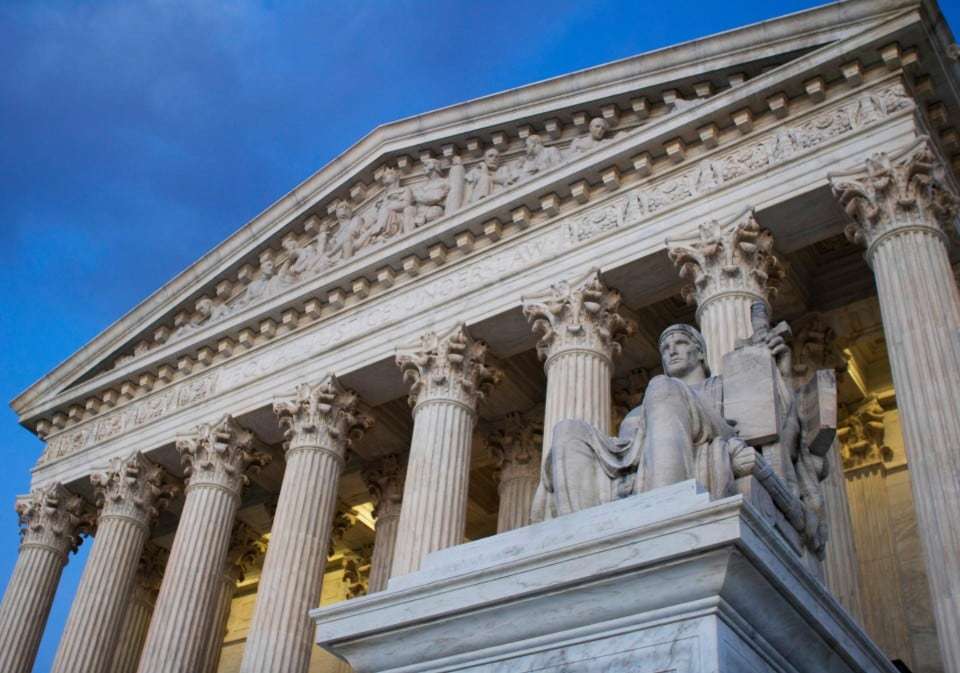The Volokh Conspiracy
Mostly law professors | Sometimes contrarian | Often libertarian | Always independent
Can we handle 'the truth about SCOTUS'?

Eric Segall has a blog post titled: "To Fix the Confirmation Process We Need to Face the Truth About SCOTUS." The truth, Segall argues, is that "the Justices resolve cases, both important front-page controversies and less publicized back-page ones, through a combination of personal preferences, life experiences, partisan politics, and values writ large, where traditional legal norms play only a marginal role in generating (as opposed to explaining) their decisions."
Segall goes on: "If our politicians could openly speak these truths about the Court, and if the Justices honestly and transparently explained that their personal preferences play a major role in deciding constitutional law cases, the public's and the media's dialogue about the Court would be greatly improved."
(Along a related line, see this recent paper by David Orentlicher, arguing that we should entrench an ideological balance on the Supreme Court.)
I am skeptical.
I am not skeptical, actually, of the premise that life experiences, values and no doubt even political ideology play some predictive role in Supreme Court decisions, on the margin. I probably think that role is narrower than some folks do, but let us assume the premise.
Rather, I am skeptical of the conclusion that we ought to encourage the justices to discuss these preferences and confess their relevance to judicial decisions. And I am skeptical of proposals to institutionally reform the court to make these influences more salient.
My friend Steve Sachs circulated the following thought experiment on Twitter, which I've excerpted and cleaned up:
Some professors - not me, of course - like some of their students as people more than they do others. If so, they try to keep that to themselves. Surely it sometimes affects non-anonymous grading (unconscious bias, etc.) But most professors also try to prevent that from happening.
Suppose, instead, that a professor chose "refreshing honesty." The professor publicly announced preferences among students, with a regularly updated leaderboard at the front of the classroom: "Ooh, bad answer on that cold-call, Mr. Smith. You drop three ranks and Ms. Jones is now in the lead."
Would we say, "wow, that professor is refreshingly honest?" Or "wow, they are violating the obligations that go with their role?"
The apolitical Supreme Court isn't a myth, any more than fairness among professors. It's an obligation, which individual judges and professors may or may not meet. Maybe people falsely believe that actual judges always meet it. Okay, that's like believing in Santa Claus. But the idea that they should, isn't.
Along similar lines, I have no fundamental quarrel with politicians who care about the politics of Supreme Court selection or academics who study the role of ideology in judicial decisions. (We may have disputes of degree, but probably not fundamental ones.)
But I do think it is dangerous to reform judicial norms or judicial institutions along these lines. The judiciary survives on the basis of a shared obligation to apply the law to disputes that come before it and to reject non-legal political considerations.
That obligation is important even when judges don't live up to it perfectly. And it is demeaned and threatened, when we suggest that it is acceptable, or even desirable, for judges to highlight their failure to live up to that obligation.


Hide Comments (0)
Editor's Note: We invite comments and request that they be civil and on-topic. We do not moderate or assume any responsibility for comments, which are owned by the readers who post them. Comments do not represent the views of Reason.com or Reason Foundation. We reserve the right to delete any comment for any reason at any time. Comments may only be edited within 5 minutes of posting. Report abuses.
Please to post comments
Mute this user?
Ban this user?
Un-ban this user?
Nuke this user?
Un-nuke this user?
Flag this comment?
Un-flag this comment?